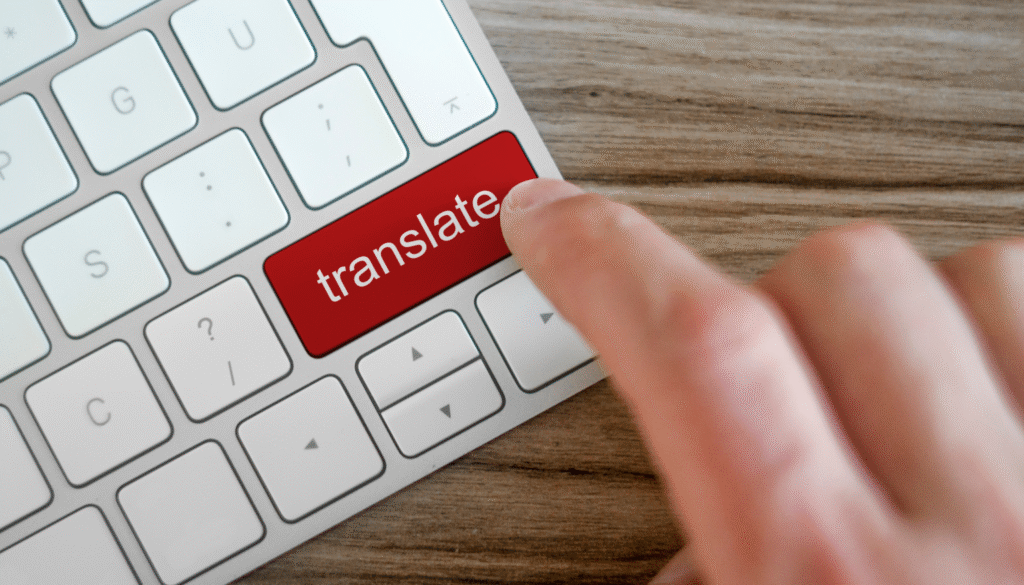Legal translation in the UAE plays a pivotal role in the functioning of both governmental and private sectors. As a multicultural and multilingual hub, the UAE has become a global center for business, trade, and international relations. With this global status comes the critical need for high-quality, accurate legal translation services that are recognized and accepted by courts, embassies, and public authorities.
In this article, we’ll explore what legal translation in the UAE entails, its importance, who needs it, the official regulations surrounding it, and how to choose the right service provider.
What is Legal Translation?
Legal translation is the process of converting legal documents from one language into another while preserving their precise meaning and legal context. This type of translation is unique because it requires not only linguistic fluency but also a deep understanding of legal terminology and systems. In the UAE, legal translation commonly involves translating documents between Arabic and other languages, especially English.
Legal translation differs significantly from general translation. A single misinterpretation can lead to legal disputes, delays in processing, or the rejection of documents by government entities. As such, it requires certified translators who are approved by the UAE Ministry of Justice.
Why Legal Translation is Crucial in the UAE
The UAE is home to over 200 nationalities, and English is widely used in business and daily communication. However, Arabic remains the official language of the country, especially in legal and governmental documentation. Therefore, any legal document issued in a foreign language must be translated into Arabic for it to be accepted by courts, notaries, and other government departments.
Examples of legal documents requiring certified translation include:
- Contracts and agreements
- Court judgments
- Wills and testaments
- Memoranda of association
- Power of attorney
- Birth, death, marriage, and divorce certificates
- Educational certificates
- Immigration and visa-related documents
Without accurate legal translation, individuals and businesses may face legal issues or delays in their applications.
Regulatory Framework for Legal Translation in the UAE
Legal translation in the UAE is strictly regulated. Only certified translators who are licensed by the UAE Ministry of Justice are permitted to perform legal translation. Furthermore, these translations must carry the official stamp and signature of the approved translator to be valid for use in courts or with government authorities.
The translation process also often requires notarization or attestation, particularly when the translated documents are intended for use outside the UAE. Many embassies and consulates have their own additional requirements regarding how documents should be translated and presented.
Therefore, it is essential to work with a legal translation service provider familiar with local regulations and procedures to ensure full compliance.

Types of Legal Documents Commonly Translated
In the UAE, a broad range of legal documents require certified translation. Below is a breakdown of some of the most commonly translated legal documents:
Personal Documents
These include birth certificates, marriage certificates, divorce decrees, academic transcripts, and diplomas. These are often needed for visa applications, university admissions, or civil registration purposes.
Commercial and Corporate Documents
Businesses operating in the UAE often require translation of contracts, memoranda of understanding (MoUs), trade licenses, and shareholder agreements. These documents are necessary for business setup, compliance, and court-related matters.
Court and Litigation Documents
Litigants and law firms frequently need translations of court rulings, legal notices, affidavits, and power of attorney documents. These must be translated precisely to avoid misrepresentation or legal ambiguity.
Immigration and Governmental Documents
Visa applications, labor contracts, residency documents, and other papers submitted to immigration departments must be translated into Arabic. Even minor translation errors can result in rejections or long processing delays.
Challenges in Legal Translation
Legal translation is not a simple word-for-word conversion. There are several challenges that make this type of translation complex:
- Terminology Accuracy: Legal language is highly specialized and varies between jurisdictions. A translator must ensure the correct legal equivalents are used.
- Confidentiality: Legal documents often contain sensitive information. High standards of privacy and security must be maintained.
- Format and Structure: Many legal documents follow specific formats. Translators must preserve this format to meet acceptance criteria.
- Cultural Nuances: Legal systems are often influenced by local culture. Translators need to bridge both linguistic and cultural gaps to ensure accuracy.
For these reasons, it is important to hire a qualified legal translator who is not only fluent in both the source and target languages but also knowledgeable in the relevant legal systems.
Benefits of Using Professional Legal Translation Services
Hiring a professional legal translation provider in the UAE ensures several benefits:
- Compliance with UAE Laws: Certified translators ensure that the translated documents meet all legal requirements.
- Accuracy and Reliability: Professionals guarantee that translations are accurate and free from errors.
- Recognition by Authorities: Certified legal translations are accepted by courts, government agencies, embassies, and private institutions.
- Time Efficiency: Experts can translate documents quickly and efficiently, reducing the time needed for applications and legal processes.
- Expert Handling: Whether it’s a business contract or a court judgment, professionals understand how to handle complex and sensitive content.

Choosing the Right Legal Translation Service in the UAE
When selecting a legal translation provider, consider the following:
- Certification: Ensure the translator is certified by the UAE Ministry of Justice.
- Experience: Look for providers with extensive experience in legal translation across different industries.
- Reputation: Check reviews, testimonials, and client feedback to gauge service quality.
- Speed and Efficiency: Time is often a critical factor in legal proceedings. Choose a service that offers fast turnaround times without compromising accuracy.
- Range of Services: A good translation company will also offer related services such as notarization, attestation, and embassy legalization.
One such trusted provider is Dubai Notary Services, which offers expert legal translation services alongside document attestation, notarization, and more—all under one roof.
Final Thoughts
Legal translation in the UAE is not just a linguistic service—it is a legally bound process that requires a deep understanding of both language and law. Whether you’re an individual seeking visa approval, a company setting up operations, or a lawyer preparing court submissions, accurate legal translation is essential for success.
With strict government regulations and multilingual demands, it’s vital to work with certified, professional legal translators who can guarantee quality, compliance, and speed. By doing so, you can avoid unnecessary delays, rejections, and legal complications—ensuring that your documents are accepted without question by the relevant authorities.
Legal translation is the bridge between legal systems, cultures, and languages. In a globalized hub like the UAE, it’s more than just a necessity—it’s a cornerstone of communication and legal integrity.







